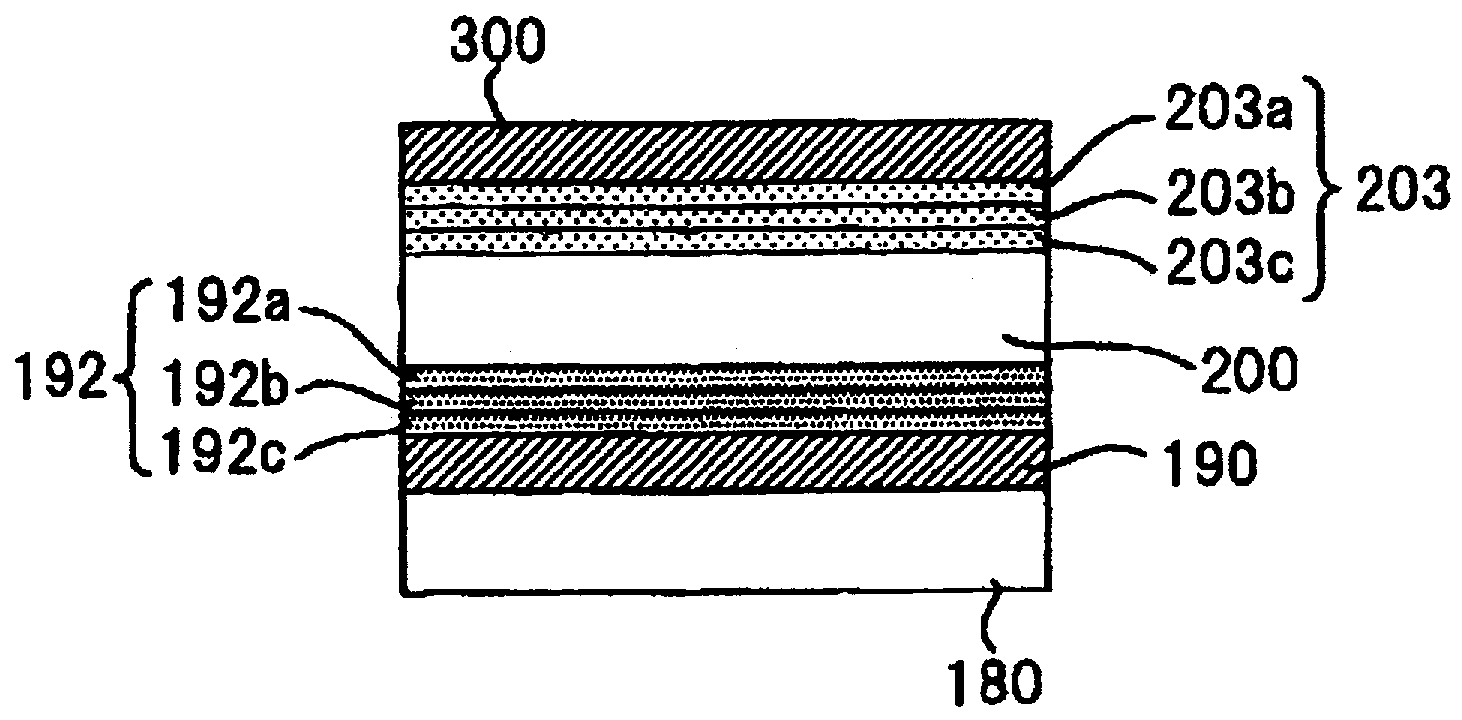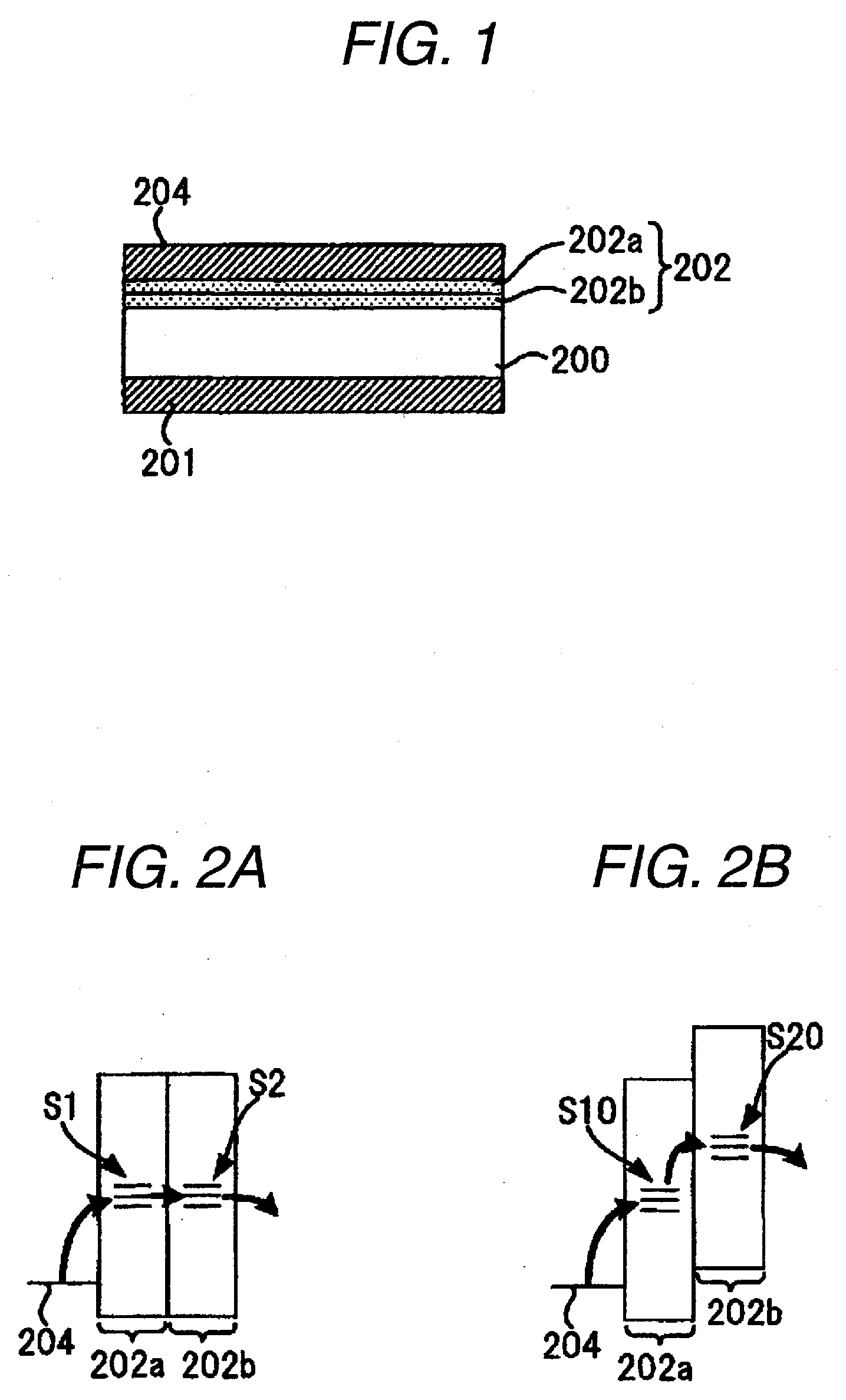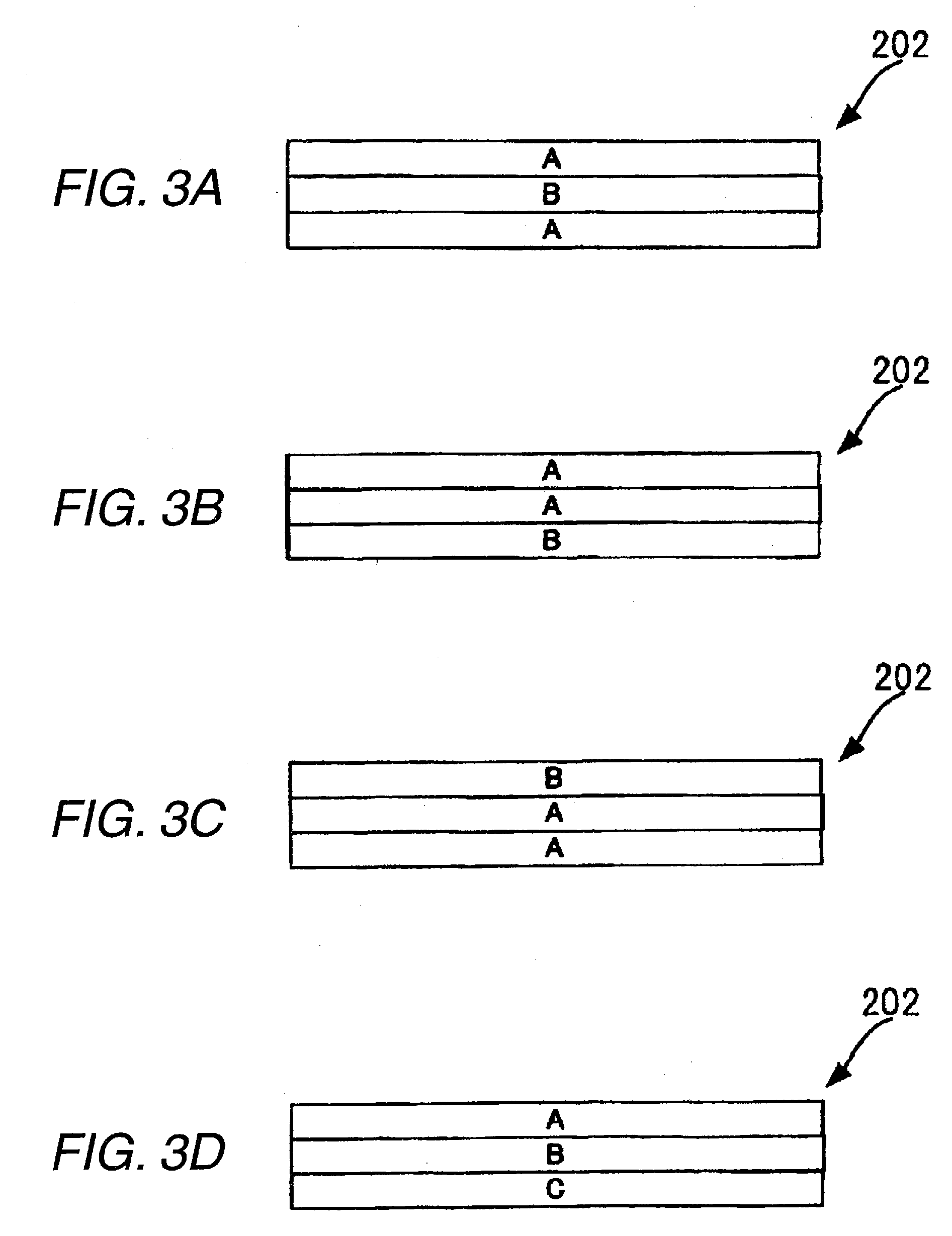Photoelectric conversion element and imaging device
a technology of photoelectric conversion and imaging device, which is applied in the direction of semiconductor devices, electrical devices, nanotechnology, etc., can solve the problems of reducing the aperture ratio and the light collection efficiency, untransmitted light, and poor light utilization efficiency, and achieves high photoelectric conversion efficiency, low dark current, and high speed responsivity. high
- Summary
- Abstract
- Description
- Claims
- Application Information
AI Technical Summary
Benefits of technology
Problems solved by technology
Method used
Image
Examples
first embodiment
[0275]FIG. 1 is a schematic cross-sectional view showing one example of the construction of the photoelectric conversion element having a charge-blocking layer according to this embodiment.
[0276]In FIG. 1, reference numeral 200 is a photoelectric conversion layer, reference numeral 202 is a charge-blocking layer having a two-layer structure, reference numerals 202a and 202b are layers constituting the charge-blocking layer 202, and reference numerals 201 and 204 are electrodes.
[0277]For example, when the electrode 204 is provided as an electrode on the light incident side, since light needs to be incident into the photoelectric conversion layer 200, the electrode 204 is preferably composed of a material having high transparency. As for the electrode having high transparency, a transparent electrically conductive oxide (TCO) may be used. Similarly, the electrode 201 is preferably composed of a material having high transparency, because as seen in the construction of an imaging device...
second embodiment
[0310]In the second embodiment, a photoelectric conversion element having a charge-blocking layer with a multiple layer structure is specifically described by referring to FIGS. 6 to 11.
[0311]The charge-blocking layer includes “a hole-blocking layer” working as a high barrier to the injection of a hole from the adjacent electrode and exhibiting a high transport ability for an electron that is a photocurrent carrier, and “an electron-blocking layer” working as a high barrier to the injection of an electron from the adjacent electrode and exhibiting a high transport ability for a hole that is a photocurrent carrier. In an organic light-emitting element and the like, as described in JP-A-11-339966 and JP-A-2002-329582, a blocking layer using an organic material is already employed for preventing a carrier from penetrating through a light-emitting layer, but by inserting such an organic blocking layer between an electrode and a photoelectric conversion layer in a photoelectric conversio...
third embodiment
[0346]A construction example of a solid-state imaging device using the photoelectric conversion element having a structure shown in FIG. 11 is described below. In the following, description is made by referring to FIGS. 12 to 16. In each of these Figures, similarly to the above-described embodiments, both the hole-blocking layer and the electron-blocking layer have a multiple layer structure. However, in FIGS. 12 to 16, for drawing convenience, each blocking layer is not illustrated in particular as being divided into a plurality of layers.
[0347]FIG. 12 is a schematic cross-sectional view of one pixel portion of a solid-state imaging device for explaining the third embodiment of the present invention. FIG. 13 is a schematic cross-sectional view of the intermediate layer shown in FIG. 12. In this solid-state imaging device, a large number of pixels, one of which is shown in FIG. 12, are disposed in an array manner in the same plane, and one-pixel data of the image data can be produce...
PUM
 Login to View More
Login to View More Abstract
Description
Claims
Application Information
 Login to View More
Login to View More - R&D
- Intellectual Property
- Life Sciences
- Materials
- Tech Scout
- Unparalleled Data Quality
- Higher Quality Content
- 60% Fewer Hallucinations
Browse by: Latest US Patents, China's latest patents, Technical Efficacy Thesaurus, Application Domain, Technology Topic, Popular Technical Reports.
© 2025 PatSnap. All rights reserved.Legal|Privacy policy|Modern Slavery Act Transparency Statement|Sitemap|About US| Contact US: help@patsnap.com



